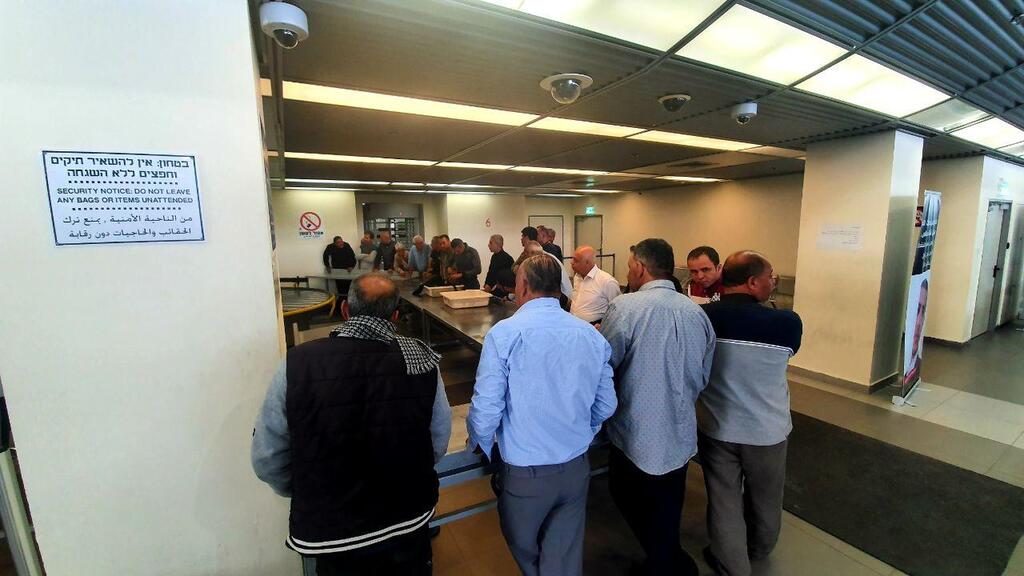Getting your Trinity Audio player ready...
The rocket volley that was launched on Jerusalem and opened "Operation Guardian of the Walls" was much more than just a premeditated military maneuver — this was a blunt and conscious violation of the status quo in the Gaza Strip for the past year and a half which stood in the heart of what could be called "the Israel strategy" on the issue.
This escalation in violence did not come amid a deteriorating security situation or some sort of civilian hardships as happened leading up to the 2014 Gaza war. Quite the opposite.
5 View gallery


Hamas leader in Gaza Yahya Sinwar holding up a child donning militant garb and holding a firearm during a memorial for victims of latest round of fighting with Israel
(Photo: AFP)
The recent fighting came as quality of life in the Gaza Strip was continually improving and after Israel promoted many nods designed to ensure civilian stability in the Palestinian enclave — from issuing traders exit permits, through promoting exports from the seaside territory, to expanding its fishing zone and providing broad assistance to help eradicate COVID-19.
Hamas' opening shot and its use of Israel's conduct in Jerusalem as an excuse attest to how the terror outfit perceives the status quo: a bind of nebulous understandings from which it can opt in and out according to its whims.
The Israeli side, however, worked its fingers to the bone to preserve the arrangement that was seen as a guarantee to long-lasting peace in the Strip.
The launch of the campaign was a testament to Hamas' erroneous assessment of how Israel would respond. The group prepared for several days of fighting but had ultimately found itself paying a much heavier toll than it had originally expected.
Hamas was under the impression that Israel was too afraid to undercut the status quo and that it could circle back to square one or even secure further concessions after a short and symbolic punishment.
Now, as the dust has settled on the conflict, Israel faces a crucial dilemma — reverting to the status quo ante or changing the rules of the game.
5 View gallery


Child stands in rubble in wake of Israeli strikes on terrorist targets in the Gaza Strip
(Photo: AFP)
The former, and its civilian benefits, is seen by Hamas as a strategic asset that helps it fulfill the needs of the public in Gaza and preserve its rule.
A swift reversion to the conditions that existed before the operation would signal to Hamas its aggression does not entail any dire consequences, whereas freezing or eliminating such benefits may be too great of a blow for Hamas' ego.
Alongside the drubbing Israel delivered to the organization, this is a critical component in the Jewish state's efforts to restore its deterrence and to demonstrate the heavy toll it will exact for trying to dictate it the rules of engagement.
5 View gallery


Children trying to salvage goods from underneath the wreckage following an Israeli strike in the Gaza Strip
(Photo: AP)
Israel would be better not reverting to the previous state of affairs and examine two possible alternatives instead.
First, devising a new set of rules and dictating conditions that have hitherto been flexible, especially as it pertains to the issue of prisoners and missing persons. Israel is required to make it clear that it does not intend to be flexible anymore, and that it is not impressed by Hamas' threats that such a move could destabilize the Gaza Strip.
The second alternative is not reaching any understandings with Hamas at all but allowing the group to stay mum and not bind it by any restrictions which will reserve Israel the right to target its military infrastructure and higher-ups at any given chance.
5 View gallery


Yahya Sinwar joins cleaning efforts following Israeli pounding of Hamas targets in the Gaza Strip
(Photo: AFP)
It will be preferable to promote civilian benefits, but not as part of a broader strategy, but only under specific circumstances that Israel deems appropriate.
Given the non-binding nature in which Hamas perceives such agreements, Israel may also need to adopt a similar approach.



